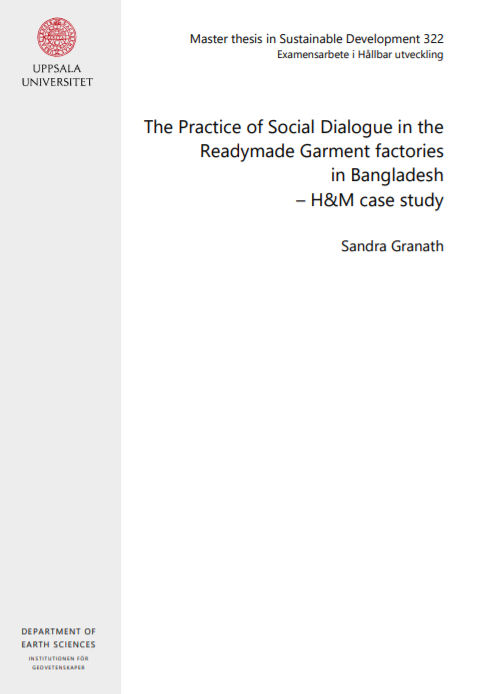
In December 2012 H&M adopted a human rights policy, based on the UN Guiding Principles on Business and Human Rights. Among its policies, H&M forbids the use of undeclared production units by its suppliers.
For the original source, please click here.

In December 2012 H&M adopted a human rights policy, based on the UN Guiding Principles on Business and Human Rights. Among its policies, H&M forbids the use of undeclared production units by its suppliers.
For the original source, please click here.

Corporations have increasingly turned to CSR-initiatives in order to monitor workers’ rights and responsibilities in global supply chains. This article argues that in order for these CSR- initiatives to succeed in enabling workers’ voice at the workplace, the shared benefits of the practice must be realized by all stakeholders. In this article, H&M’s social dialogue project in Bangladesh has been analyzed through the lens of social practice theory identifying three crucial elements which must exist or be created, linked and sustained in order to produce behaviour change, which in this case is social dialogue between factory workers and factory management. This article argues that H&M’s social dialogue project has all the essential elements and objectives to increase workers’ voice and improve industrial relations. It also points out the importance of not viewing bipartite social dialogue as the end goal. Instead, H&M’s implementation of bipartite social dialogue at their suppliers’ factories should serve as the stepping stone toward tripartite social dialogue where trade unions can empower workers in the readymade garment-sector. The trade unions have the unique right to bargain collectively and if corporations truly want to ensure workers’ rights, they must promote increased union activity in the industry. This research describes the key activities, training methodology, objectives and expected outcomes of H&M’s social dialogue project followed by an analysis of workers employed in Bangladeshi readymade garment-sector experiences, attitudes and associations to social dialogue. By analysing workers’ associations to social dialogue and H&M’s objectives of the social dialogue project, certain conditions have been identified as crucial in order to enable efficient social dialogue at the workplace.
For the original source, please click here.